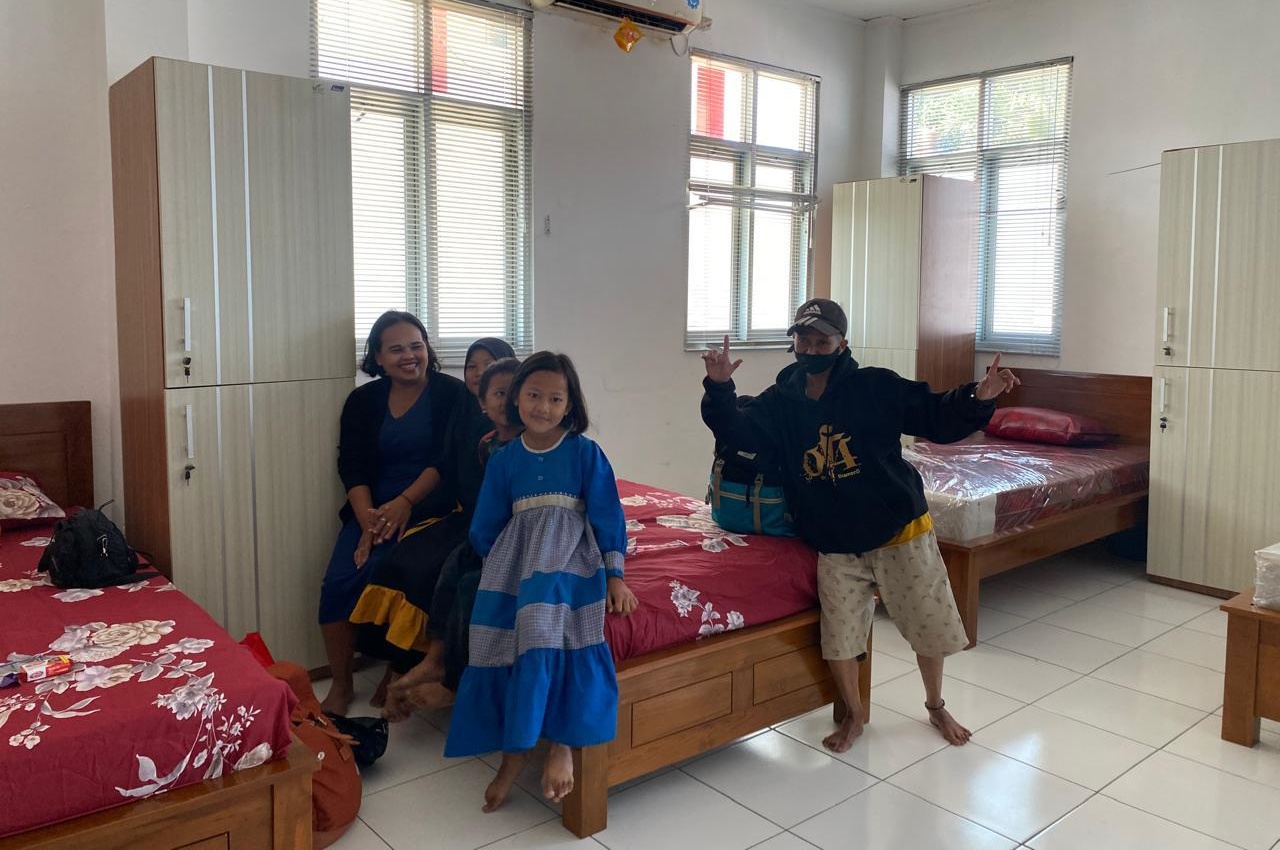From 18 families who originally lived in the house, 14 families are now left, while the other families have moved out and are trying to live independently. One of the families who left the house that occupied since 1982, is Suherman (63) and his wife, Mrs. Yani (42), and their three children who now live in the Abiyoso Cimahi Center owned by the Ministry of Social Affairs.
Mrs. Yani is receiving training because she wants to become a laundry entrepreneur, while Suherman is still undergoing health treatment. Minister of Social Affairs Tri Rismaharini requested that children's education be prioritized. Therefore, Amira (8), Suherman's child, is sent to State Elementary School Mandiri 3 Utama Cimahi, which is not far from the location of the Abiyoso Center. “I am happy at school because I have many friends. Earlier at school I learned how to make a flag,” Amira said happily. In addition to receiving shoes and school uniforms from Sentra Abiyoso Cimahi, Amira also received various school supplies.
Amira's older sister Ade Heriyani (11), who once attended school but dropped out due to financial problems, is now trying to get back to school at the same school as her sister, State Elementary School Mandiri 3 Utama Cimahi. Ade had to be persuaded to go to school because she was used to taking fried foods from her neighbours and reselling them for Rp 200 each. Ade can earn between Rp 3,000 and Rp 6,000 in a day. Sometimes Ade can sell two to three times a day to increase her income.
The Abiyoso Cimahi Center continues to work with other family members gradually so that they can become economically independent and improve their welfare. The case of one house occupied by 18 families was originally known to the Voter Data Updating (Pantarlih) officers who were carrying out their duties to record voters. After being recorded, the house was plastered with regional head election stickers. It turns out that in the narrow house that only has one small bathroom, there are 46 people consisting of 18 families. This finding then went viral on social media.
 Bahasa
Bahasa
 English
English


